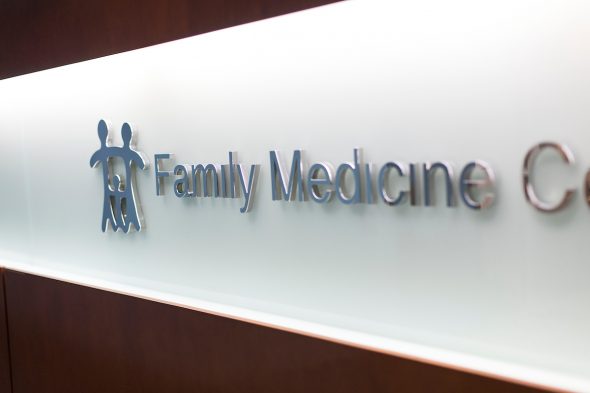UIC to increase doctor training to treat substance use, mental health
The University of Illinois Chicago has received a $2.5 million grant to better prepare primary care physicians to treat substance use disorders and mental health conditions in rural and urban underserved populations.
The grant, funded by the U.S. Department of Health and Human Services, or HHS, will be used to provide medical faculty more exposure, education and training in screening, diagnosis, evaluation, and treatment for substance use and mental health conditions.
Faculty also will incorporate this knowledge into residents’ curriculum.
The new funding, which is awarded through HHS’ Health Resources and Services Administration, will be provided over five years and will give faculty time to develop curriculum, attend collaborative care meetings and train faculty champions. The grant also will support a resident in the rural track and additional staff, including social workers, psychologists and pharmacists.
“The UIC Department of Family Medicine and Residency Training Program is the ideal setting to enhance and propagate an interprofessional training program,” said Dr. Christine Neeb, assistant professor of clinical family medicine at the UIC College of Medicine and co-principal investigator for the grant. “We have the capacity to train current and future primary care physicians in rural and urban settings, creating a self-sustaining workforce to continue to address this health crisis for years to come.”
Neeb said there is a critical need for primary care physicians and mental health specialists in underserved rural and urban communities. More than 30% of small and rural hospitals are in designated primary care physician shortage areas, and more than 90% of these hospitals are in designated mental health service shortage areas, according to a 2018 Illinois Health and Hospital Association report.

There was an 82% increase in opioid-related deaths from 2013 to 2016, with many of the highest death rates in rural Illinois counties. Their urban underserved counterparts had similarly high death rates, particularly among Black individuals on Chicago’s West and Southwest sides, according to a 2017 State of Illinois comprehensive opioid data report.
“We hope to increase training for residents and get them more comfortable with treating addiction and mental health. This will prepare residents and physicians for placement in underserved areas,” said Neeb, who cares for patients at UI Health Mile Square Health Center, a network of federally funded community health centers in Chicago. “Most family medicine doctors are comfortable treating anxiety and depression. We want them to gain confidence treating other mental health issues like schizophrenia and bipolar disorder, as well as addiction disorders.”
Having these skills allows doctors to treat their patients more holistically, according to Dr. Sarah Henkle, a co-investigator of the grant.
“A family medicine physician who can effectively treat a patient’s alcohol use, for example, will directly impact that patient’s blood pressure control and their difficulty sleeping. We will provide easier access to more comprehensive care for our patients with this additional training,” said Henkle, UIC assistant professor of clinical family medicine.
Dr. Nicole Gastala, also involved in the grant, stressed the importance of the grant’s aims.
“Evaluation and managing serious mental health issues and addiction is integral to improving access to care for those in highest need,” said Gastala, UIC assistant professor of clinical family medicine and director of behavioral health and addiction at Mile Square. “This grant will help lay the foundation for residents and faculty to integrate evidence-based care for mental health and addiction into a collaborative patient-centered care model.”
The interprofessional component to this program is integral, said Adrienne Williams, who will also work on the grant program.
“No one stays mentally healthy for their entire lives, but while integrated care is becoming more mainstream, only a small percentage of health professionals receive training in working on interprofessional teams,” said Williams, UIC associate professor of clinical family medicine and director of behavioral science. “This grant will allow us to further the education of family physicians to work in multi-professional settings to best serve our patients.”
The grant team includes co-principal investigator Jennie Jarrett, Nicole Gastala, Jennie Jarrett, co-principal investigator Christine Neeb and Adrienne Williams.
The project is supported through a grant from the U.S. Department of Health and Human Services, Health Resources and Services Administration (D58HP375810100).
